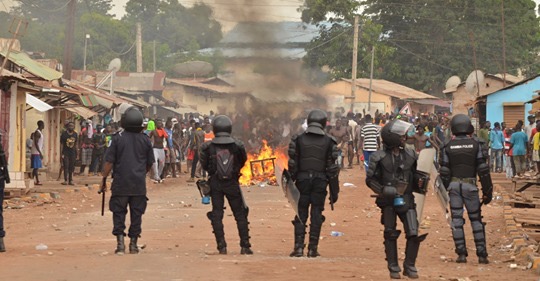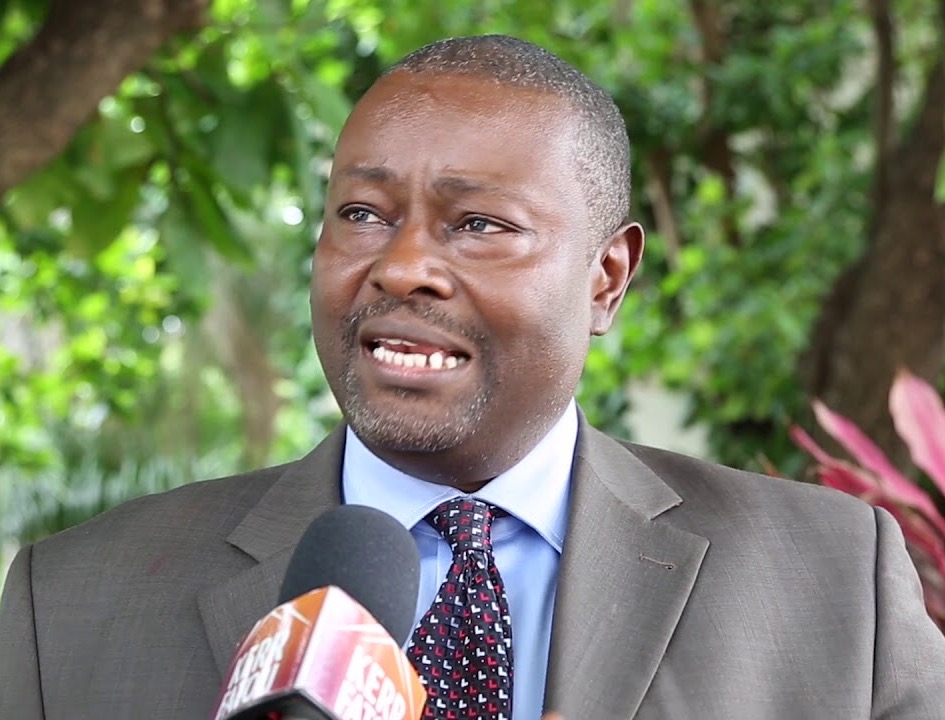
The chairman of the National Human Rights Commission has urged the police to work to change the public perception of them in the light of recent encounters with the country’s youths.
Emmanuel Joof told police officers at a three day training on human rights in Bijilo that they need to work on their negative public relations particularly among youths.
“There is a lot of antagonism if you look at it right now especially with the youths and the police. The (police) are seen as anti-people, anti-youth. But perhaps we need to change this from your side and the side of the population,” he told the police officers.

Mr. Joof said Gambians have become more vocal in exercising their rights and that the police must face up to the new reality.
“We need to re-orient ourselves, not only as Gambians but as law enforcement officials. It cannot be business as usual or business as it was before,” he said.
He said the role of law enforcement officials in maintaining law and order and keeping the peace is central in the functioning of the state.
The police, he said, are expected to have a good understanding of domestic, regional and international human rights frameworks and standards in order to fulfil their obligations effectively and efficiently.
“The police play a pivotal role in upholding and maintaining the peace in any country. Having said that, protecting and representing the human rights of every individual is also fundamental in the dispensation of the work of the police.
“In exercising their mandate and discharging their duties, the police have come under a lot of criticism. Police officers over a period of 22 years rule by the AFPRC and APRC respectively have been subjected to a lot of executive pressure to act and discharge their functions without following due process resulting in serious violations of fundamental rights and freedoms of the people.”
He said the police as protectors of the law have both a legal and a moral obligation to uphold human rights standards and act strictly in accordance with the law including their code of conduct, and the spirit of international, regional human right laws, standards, frameworks and obligations during arrest, detention, and trial of suspects.
“The Gambia Police Force, many a time, while discharging their duties, have been allegedly accused of falling short of adhering to human rights standards.”
Mr. Joof said that the purpose of the training is to build the capacity of the police and sensitise them on the role of the National Human Rights Commission (NHRC).
The UNDP Residence Representative, Assata De, said community policing is important because people cannot effectively do their work without partnering with the people they serve.
Ms. De said the training is an integral part of the NHRC’s work and is aimed ultimately at reinforcing the capacities of police officers to protect and promote human rights in compliance with national law and international human right standards.
“As The Gambia continues to embark on the transitional justice process and the Commission continues to dispense its mandate, the UNDP and OHCHR continue to stand firm to support the process of delivering your mandate,” she said.
The training is organised by the NHRC in partnership with the Peace Building Support Officers, Office of the High Commission for Human Rights and the UN Transitional Justice Project Management Unit under the umbrella of UNDP.










Recent Comments